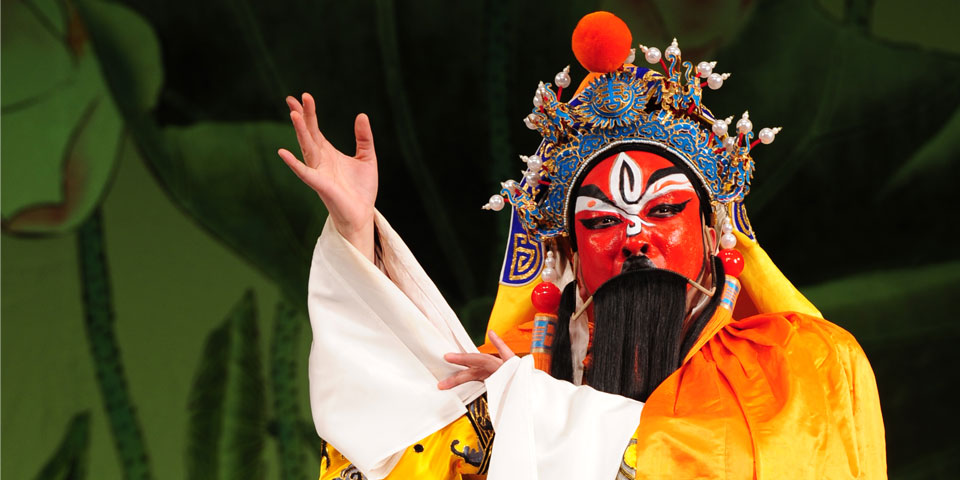

Qi Shu Fang began studying Beijing Opera in Xian at the age of four in 1947 with her sister-in-law, Chang Mei-Chuan, who was a distinguished actress in the role of women skilled in martial arts. By the 1950s, schools and institutes took over from troupes and families the role of passing on many artistic traditions, including Chinese opera. In the 20th century, Chinese opera became a means of mass communication. Over the last 200 years, Beijing opera has drawn in other regional musical aspects and evolved into a dominant style of Chinese opera performed in major cities of China, Taiwan, and in overseas Chinese communities here in the United States. This collaboration was the source of musical styles that combined to form Beijing Opera. In 1828 several opera troupes practicing regional from Anhui and Hubei provinces performed together for the Imperial household and also performed locally for the public. and it is said that almost anyone from mainland China over 25 years of age can hum arias from her most famous operas.īy Terry Liu, National Endowment for the Artsįor twelve centuries Chinese opera, of which there are some 360 distinct regional styles, has conveyed cultural values through art to Chinese people. Films of her early performances can still be purchased in video stores in most Chinese communities around the U.S. She continues to teach in a community arts center and to perform, recently in such venues as Symphony Space and Lincoln Center.

She was awarded the title of "National Treasure of China." Swarthmore College Professor Allen Kuharski says: "From a Western perspective, it would be as if one found the voice and acting of Maria Callas and the athleticism of Rudolf Nureyev in one performer's body." In 1988, she relocated to New York where she formed an opera company. Her reputation as a performer grew due to her facility in martial arts, her riveting acting, and her striking singing. Overnight she became a sensation throughout China. During the Cultural Revolution she was picked by Madame Jiang Qing, Chairman Mao's wife, to play the female lead in one of the eight national "model operas" when she was 18 years old. Historically, Beijing Opera had been a masculine art form with female roles played by males, but after 1949 women began to emerge as performers and Qi Shu Fang was central in that movement. After winning first prize in a competition for rising actors, she was praised by the legendary female impersonator, Mei Lan-Fang. Qi started studying Beijing Opera at the age of four and later went to the Shanghai Dramatic School. Qi Shu Fang is known both in China and in the United States as a master performer.

Blending song, dance, declamation and acrobatics, this popular Chinese art form dates to at least the 1600s.

Beijing Opera, one of over 300 operatic styles in China, is perhaps the best-known and most widely practiced theatrical tradition in the world.


 0 kommentar(er)
0 kommentar(er)
